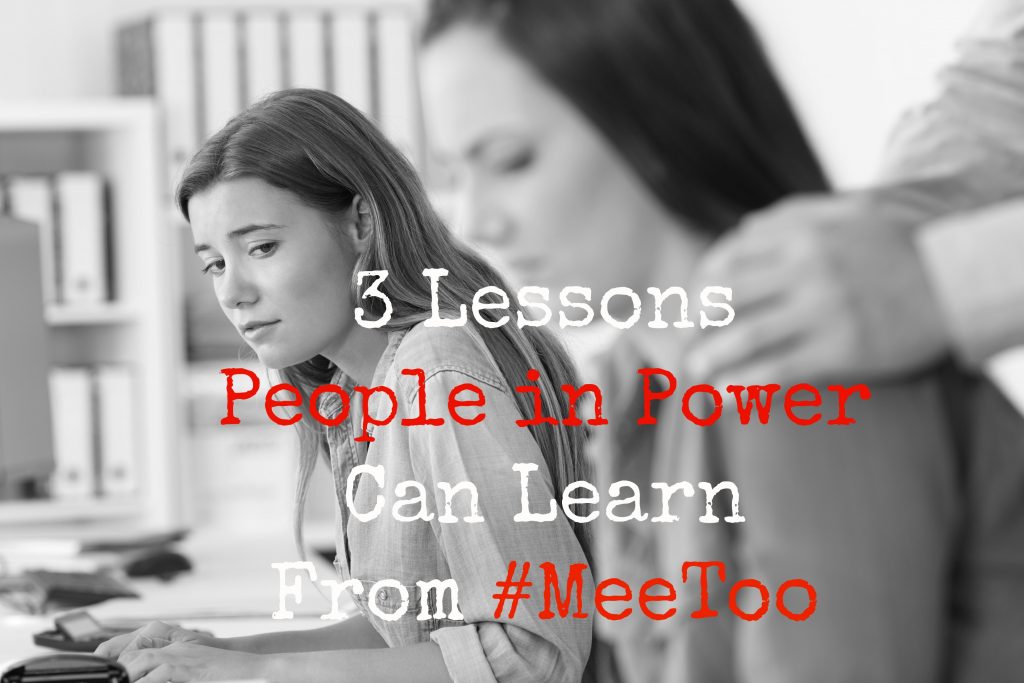Podcast: Play in new window | Download
Subscribe: RSS
The look in this coworker’s eyes really disturbs me. It reflects the fear many individuals described in MeToo tweets in recent months. No one should ever be subjected to the sexual advances from a person of power in the workplace. #metoo is empowering individuals to come forward and report sexual harassment and abuse in the workplace. Perpetrators of harm are on notice that a day of reckoning has come and victims will be silent no more. Beginning with Hollywood mogul Harvey Weinstein, an unmasking of sexual predators within media and government institutions is bringing a heightened awareness of the epidemic of sexual harassment in the workplace. Victims are primarily women, although a few men have also reported assault. In every case exposed thus far, the perpetrators have been men in positions of power. No institution is safe to work in. Sexual harassment, abuse, or pedophilia in churches and schools is happening daily. 800,000 children are missing each year in America and many are being trafficked in the black market. Sexual exploitation is an insidious virus infecting our society, doing great harm to innocent, vulnerable individuals. My hope is that the current purge in mainstream media will serve notice to all who hold positions of power that abuse in the workplace will no longer be tolerated. It cannot be ignored or covered-up. As a business owner, I am in a position of power. A staff of 8 counselors work under my direct supervision. Additionally, I have clients who expect me to provide a safe space for them to talk about their personal problems. On occasion, clients disclose incidents of sexual harassment or abuse in the workplace. The emotional scars they bear is not something I would wish on my worst enemy. If you are in a position of power listen closely. With power comes great responsibility. See how the mighty have fallen! It could happen to anyone of us. To avoid this, let me share 3 things people in positions of power can learn from #metoo.
